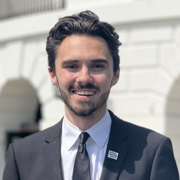|
Stultus Maximus posted:http://www.nydailynews.com/news/politics/scaramucci-friend-baselessly-accuses-priebus-affair-article-1.3369153 It's like Game of Thrones, but set in high school and all the characters are dumb as gently caress.
|
|
|
|

|
| # ? May 28, 2024 10:17 |
|
FrozenVent posted:It's like Game of Thrones, but set in high school and all the characters are dumb as gently caress. But you repeat yourself.
|
|
|
|
Zeroisanumber posted:I just don't see a big target like a carrier being practical as missile technology gets better and more ubiquitous. I mean, maybe we can make Star Trek shields or whatever to counter that. But I guess we will still have the ability to bomb some technicals in the desert or provide hurricane relief in southeast Asia and that's all we really need.
|
|
|
|
Yeah but in 20 years we'll have battleships with giant laser arrays that can shoot down any number of incoming missiles!
|
|
|
|
|
Cugel the Clever posted:This, but I also have zero experience in either naval strategy or missile technology. It just seems like swarming, super-accurate ASBMs can't be over 20 years away for China (assuming it doesn't succumb to its internal problems), offering substantial ability to deny carriers the ability to conduct operations against land-based targets at a tiny fraction of the cost it takes to design, build, man, and maintain a carrier battle group. At some point the counter to each individual high tech threat becomes its own Star Wars program so I don't really blame the leadership for focusing technical attention on the forces we can fight without starting WW3 and leaving the rest to diplomacy and economy.
|
|
|
|
https://twitter.com/GovMikeHuckabee/status/890495682867585024 its like he's trying really hard to get into twitter comedy and it gets worse every time
|
|
|
|
Is that the graveyard where the dog his son tortured and killed is buried?
|
|
|
|
I don't even get it. What's the sick burn supposed to be? A reference to the supposed massive number of votes cast by dead people? Hopefully someone calls him on some religious hypocrisy, mocking the deceased like that
|
|
|
|
Lmao his exclusive joke writer, chip hinkelman, is in the retweets defending him. Top retweet tho is some dude pointing out how they have a higher voter turnout than the US and other good poo poo
|
|
|
|
facialimpediment posted:He accused Reince of leaking again, then basically said IF YOU KEEP LEAKING I'LL TELL EVERYONE ABOUT YOUR MISTRESS. Someone since got to him and he apologized and deleted everything. That's vicious.
|
|
|
|
FrozenVent posted:It's like Game of Thrones, but set in high school and all the characters are dumb as gently caress. It's more like arrested development, but without Michael
|
|
|
|
Ivankas Michael. Thinks she's good but is just as lovely as the rest. Barron is def Michael Cera
|
|
|
|
|
Cugel the Clever posted:This, but I also have zero experience in either naval strategy or missile technology. It just seems like swarming, super-accurate ASBMs can't be over 20 years away for China (assuming it doesn't succumb to its internal problems), offering substantial ability to deny carriers the ability to conduct operations against land-based targets at a tiny fraction of the cost it takes to design, build, man, and maintain a carrier battle group. That's why you add
|
|
|
|
This reality wouldn't be a tv show. It would be rejected by every network for being too stupid.
|
|
|
|
|
GOB: he called me up and said 'I'm gonna write a story on your meeting with the Russians!' George: oh no, oh poo poo, ok, I'll call up Barry, we'll start working on denying, or spinning the meeting- GOB: no dad, it's ok, I took care of it! George:... How? GOB: I published the email chain on Twitter! *George slams head on table* GOB: Pulled the story right out from under him! That'll show that reporter! George: I've got the dumbest loving sons
|
|
|
|
An hour ago in Venezuela: someone planted a firework IED next to the PNB convoy. (PNB are essentially state police I think) https://twitter.com/raylilujan/status/891707028690882560 Today's the day of the big vote (where the goverment has told everybody they need to vote to ceade more power to the government)
|
|
|
|
|
M_Gargantua posted:An hour ago in Venezuela: someone planted a firework IED next to the PNB convoy. (PNB are essentially state police I think) Nice that they immediately start firing gas grenades of some sort into the watching, and applauding tbf, crowd.
|
|
|
Venezuela is the cover story for The Economist this week. It gives an idea of what is going on with their elections.quote:The mess one Marxist makes
|
|
|
|
|
The DIA put out a report on Russian military strength, it's pretty comprehensive. http://www.dia.mil/Portals/27/Documents/News/Military%20Power%20Publications/Russia%20Military%20Power%20Report%202017.pdf
|
|
|
|
Stultus Maximus posted:http://www.nydailynews.com/news/politics/scaramucci-friend-baselessly-accuses-priebus-affair-article-1.3369153 When I want to apologize to noted political figures, I always send my apologies to email addresses ending at @mail.com https://twitter.com/SINON_REBORN/status/891729354652352513
|
|
|
|
BigDave posted:The DIA put out a report on Russian military strength, it's pretty comprehensive.
|
|
|
|
Hot Karl Marx posted:https://twitter.com/GovMikeHuckabee/status/890495682867585024 welp i'm visiting a graveyard in a foreign country, which according to my religion is traditionally a sacred ground and even otherwise is a place of peaceful rest for the bodies of hundreds of people I don't know, time to make a political joke of it
|
|
|
|
Hot Karl Marx posted:https://twitter.com/GovMikeHuckabee/status/890495682867585024 https://twitter.com/prooffreader/status/890638271427915777
|
|
|
|
Prop Wash posted:welp i'm visiting a graveyard in a foreign country, which according to my religion is traditionally a sacred ground and even otherwise is a place of peaceful rest for the bodies of hundreds of people I don't know, time to make a political joke of it I really hope Norwegians get wind of his stupidity and the whole country stops speaking English to him as a result. Cause that's the meanest I can imagine Norwegians being when you're visiting and you tick them off somehow.
|
|
|
|
shyduck posted:There's a small subsection dedicated to online trolls in this. What a time to be alive. DIA Information Confrontation posted:“Information confrontation,” or IPb (informatsionnoye protivoborstvo), is the Russian government’s term for conflict in the information sphere. IPb includes diplomatic, economic, military, political, cultural, social, and religious information arenas, and encompasses two measures for influence: informational-technical effect and informational-psychological effect.
|
|
|
|
page 88
|
|
|
|
|
Smiling Jack posted:page 88
|
|
|
|
Smiling Jack posted:page 88
|
|
|
|
Handsome Ralph posted:I really hope Norwegians get wind of his stupidity and the whole country stops speaking English to him as a result. Cause that's the meanest I can imagine Norwegians being when you're visiting and you tick them off somehow. Norway could just kick him out of the country. How loving funny and how big of a poo poo storm would that set off..
|
|
|
|
https://twitter.com/MaxineWaters/status/891483789058289665
|
|
|
|
Hot Karl Marx posted:https://twitter.com/GovMikeHuckabee/status/890495682867585024 Prop Wash posted:welp i'm visiting a graveyard in a foreign country, which according to my religion is traditionally a sacred ground and even otherwise is a place of peaceful rest for the bodies of hundreds of people I don't know, time to make a political joke of it I hope the appropriate Norse god dumps a big landslide on his ignorant rear end.
|
|
|
|
Genocide Tendency posted:Norway could just kick him out of the country. They could, but they won't. Honestly, I doubt most of the country cares about a dog killer's fat father visiting their country. Most Norwegians (at least in the urban areas) speak English pretty well, so at most I could just see the majority of them doing what Shinzo Abe's wife did to Trump.
|
|
|
|
Usually dickheads who espouse traditional/family values but do the opposite do their horrible poo poo in private. Not Huckabee though.
|
|
|
|
Why do I always find all those Russian terms like “compromat” so fascinating? They have the best words for loving with people. сука блять.
|
|
|
|
Smiling Jack posted:page 88
|
|
|
|
Smiling Jack posted:page 88
|
|
|
|
Smiling Jack posted:page 88
|
|
|
|
Smiling Jack posted:page 88
|
|
|
|
Smiling Jack posted:page 88
|
|
|
|

|
| # ? May 28, 2024 10:17 |
|
Smiling Jack posted:page 88
|
|
|










































